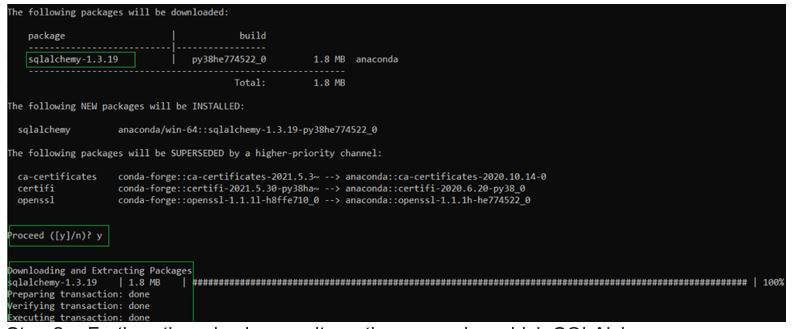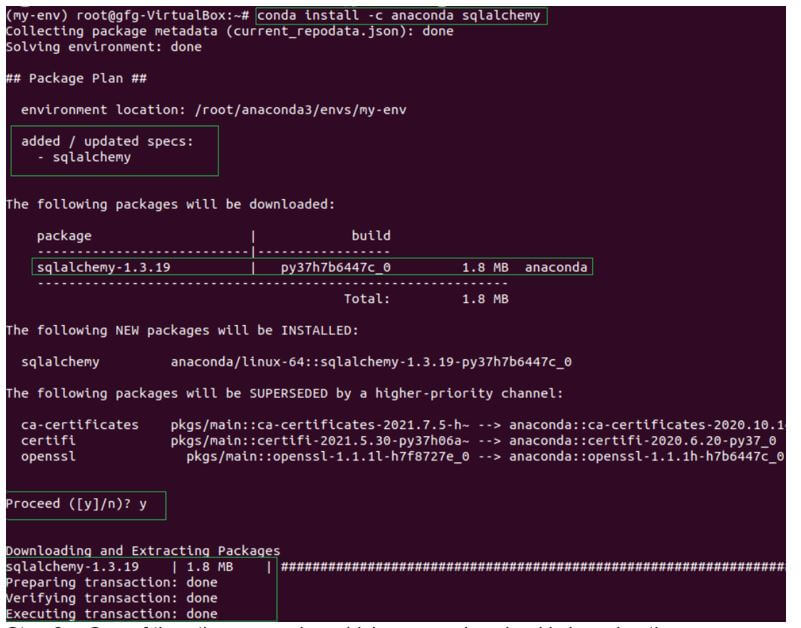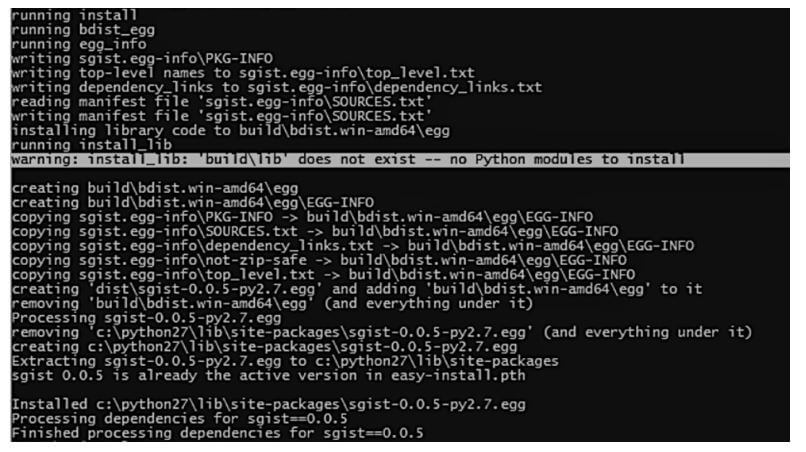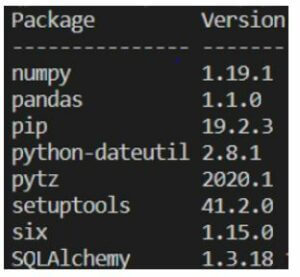Updated May 20, 2023
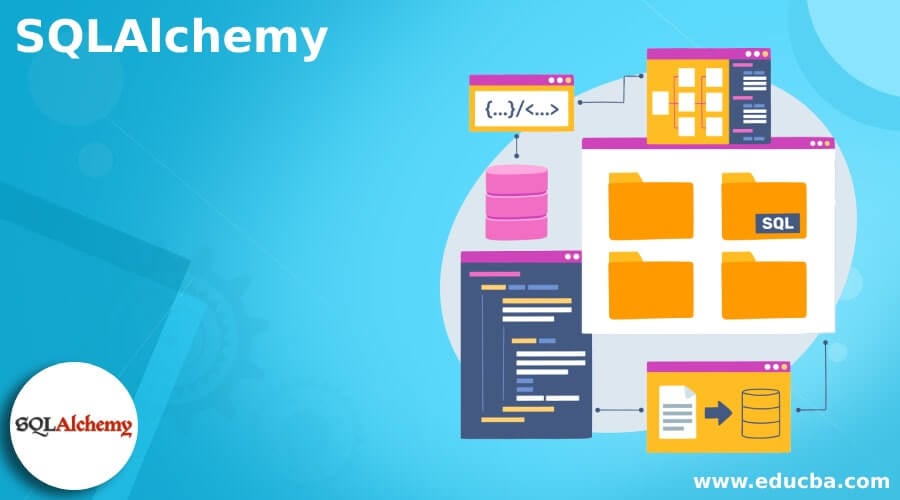
Introduction to SQLAlchemy
SQLAlchemy is one of the most popular object relation mapping tools and a toolkit of SQL that can be used to provide complete flexibility and control of the SQL for the developers. This platform is written in Python and is completely cross-platform software with open-source access released by MIT and licensed by the same. This article will be looking at one of the most popular and open-source frameworks for object-relational mapping for a database named SQLAlchemy, a super tool.
What is SQLAlchemy?
SQLAlchemy is an ORM tool used for mapping the objects with entities in a database that are tables in the case of a relational database. The mapping of classes can be done to the required database by making use of this tool. This further enhances decoupling between the database and the object model followed while creating the application and at the same time, bring the functionality to store, retrieve and access the data from the database easily. Python developers most profoundly use SQLAlchemy and APIs of SQLAlchemy to learn about the ORM framework and implement the same in their applications.
There are certain prerequisites to using the SQLAlchemy tool, which includes having great knowledge of Python language, databases, DB-API, relational databases, and SQL. The SQLAlchemy for Python has its behavior and use similar to that of Hibernate ORM for Java.
Why use SQLAlchemy?
SQLAlchemy comes along with a complete collection of persistent enterprise-level patterns that are specifically designed for the need for great performance and efficiency in accessing the data, which is adapted for the Python programming language. When the size becomes bigger, and the performance of the database needs to be improved with abstraction in the tables with the help of objects, SQLAlchemy comes to the rescue. The perception to view the database from SQLAlchemy’s point of view is that it is an engine that contains relational algebra.
One of the most popular reasons for SQLAlchemy is to use ORM, that is, object-relational mapper, which helps form the patterns for data mapping. As a result, the mapping of classes to the database can be made in multiple ways, which is completely open-ended and helps induce the decoupling in the database schema.
SQLAlchemy follows the approach of complimentary oriented where the processes carried out internally are not kept hidden in the name of automation; instead, they are fully exposed and come along with many transparent tools which can be composed. SQLAlchemy’s strategy lies in changing the perception that you will be having of SQL and databases. SQLAlchemy is used by some of the most renowned organizations, including DropBox, Survey Monkey, Reddit, The OpenStack Project, and Yelp.
How to Create the Environment for SQLAlchemy?
We will need to follow certain steps to make use of SQLAlchemy on our system:
Step 1: Installation using pip which is a Python package manager.
You can fire the below command on the command prompt for installation.
Code:
Pip install SQLAlchemyOutput:
Step 2: Further, there is also an alternative way to install SQLAlchemy using the conda terminal.
Code:
conda install -c anaconda SQLAlchemyOutput:
Step 3: One of the other ways using which we can download it is by using the python setup.py file.
Code:
Python setup.py installOutput:
Step 4: The final step is to verify the installation of SQLAlchemy, which can be done by executing the command.
Code:
Pip installThis results in the following output, where we can go for checking the version of SQLAlchemy.
Output:
SQLAlchemy Web Frameworks
There are a lot of web frameworks available in the market that are proving substantially very helpful, and the choice to go for depends upon the scenarios and requirements. Some of the web frameworks include Sanic, Flask, FastAPI, and Django, which are the Python web frameworks used to create and design web applications using a Python programming language.
1. Django
Django is one of the oldest available frameworks and provides all the resources required in the web framework. There are views based on class and function in it, and have the functionality to create the templates of the pages. There is no need to go and manipulate SQL as the admin site provided in Django can directly be used to connect to the database. It comes along with a huge set of libraries that can be used for built-in functionalities. It’s a perfect choice if your project is large-scale.
2. Flask
Flask is the micro framework used for web development, and its features include the light weighted framework, user-friendly and easy to get to know, and allows you to code in your style. It is quite opposite in behavior to that of Django. It is often accompanied by views based on functions and comes with native support for Jinja. It also has numerous libraries to assist you in having in-built resources that can simplify your task. It is mostly preferred for medium-scale projects and is mostly used to implement web-focused applications.
3. Sanic
Sanic is the newly developed web framework that is asynchronous in nature and has the benefits of speed of development as well as technicalities. It is used for development in a way that is quite similar to that of the flask. It has the highest speed of all the other frameworks discussed here. Due to its async feature, it proves to be very helpful for scaling up in an easy and effective manner. This web framework is given preference when you want the high-performance web app or in case your application demands the feature of the asynchronous flask version.
SQLAlchemy Resources
If you want to know more about SQLAlchemy and acquire in-depth knowledge about it, then the below-mentioned resources will prove to be of great help.
- The official website of SQLAlchemy is this, while for the Wikipedia link, you can refer to this.
- The essential books that can provide great clarity for SQLAlchemy include “Essential SQLAlchemy” by Jason Myers and Rick Copeland and “Fluent Python” by Luciano Ramalho.
- One more book which is really good for newbies to Python is “Programming for Beginners SQL, which also includes Python” by Byron Francis.
Database
The design of SQLAlchemy is specially done to work along with the implementation of DBAPI and with specific databases as the use of dialects is done for communication between database and DB API implementation.
The dialects of the databases that are supported and included are as mentioned below list:
- Sybase
- Oracle
- MySQL
- PostgreSQL
- Firebird
- Microsoft SQL Server
- SQLite
Along with this, you also need to make sure that you have appropriate drivers corresponding to the dialect and DBAPI installed in your system.
Conclusion
SQLAlchemy is the ORM framework used for object-relational mapping and is also considered a toolkit for SQL as it provides complete control and flexibility to the developers of SQL.
Recommended Articles
We hope that this EDUCBA information on “SQLAlchemy” was beneficial to you. You can view EDUCBA’s recommended articles for more information.
